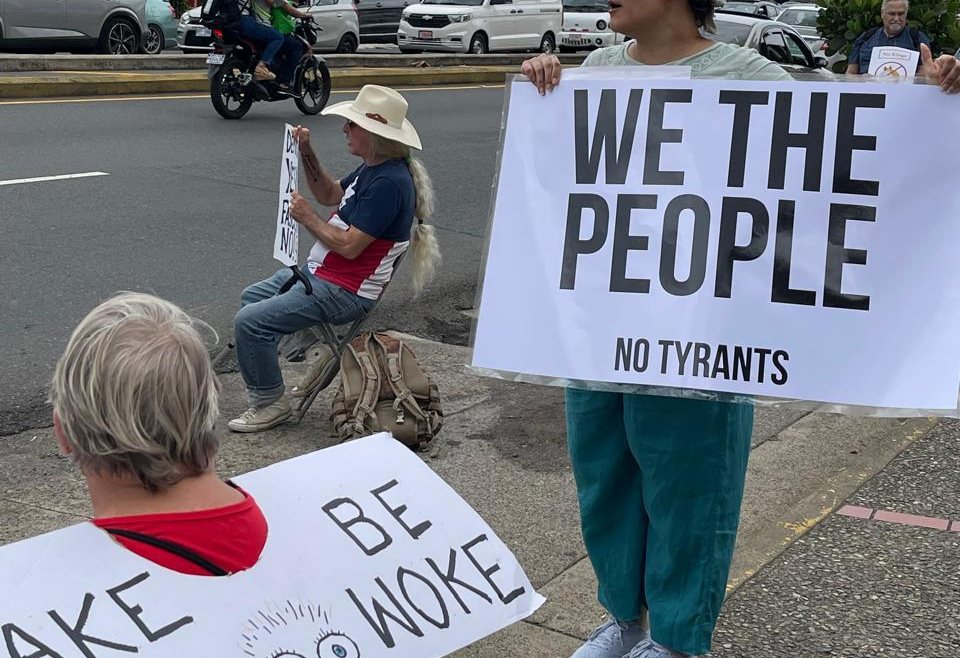Imagine Costa Rica, a land known for its peace and pura vida, now grappling with a security crisis that’s making headlines for all the wrong reasons. Laura Chinchilla, Costa Rica’s former president and ex-Security Minister, isn’t just sitting back and watching. In a candid interview with Esta Semana and CONFIDENCIAL, she’s sounding the alarm louder than a howler monkey at dawn.
A Troubling Trend in Paradise
Here’s the scoop: Costa Rica is on track to record 900 murders by the end of 2023, shooting up to a homicide rate of 17 per 100,000 inhabitants. That’s not just a statistic; it’s a wake-up call for a country that was once a regional beacon of tranquility.
Chinchilla’s Chiding of President Chaves
Chinchilla isn’t mincing words when it comes to President Rodrigo Chaves’ approach to this crisis. While he’s busy pointing fingers at the Legislative Assembly and the Judiciary, Chinchilla fears Costa Rica might take a dark turn down a path similar to Ecuador, where drug trafficking shadows loom large.
The Youth at the Crossroads
The former president highlights a critical area of concern: young people in poverty-stricken communities, many home to Nicaraguan migrants, who are easy targets for recruitment by criminal gangs. It’s not just about stopping crime; it’s about starting opportunities for these vulnerable groups.
The Root of the Problem
Why the sudden surge in violence? According to Chinchilla, it’s a cocktail of dwindling resources for public security, recruitment of police personnel, and weakened judicial institutions. Add to that a seven-year delay in operationalizing a special jurisdiction for organized crime, and you’ve got yourself a recipe for disaster.
The Costa Rican Cocaine Express
With Costa Rica becoming an unwitting hub in the cocaine, opium, and fentanyl express, organized crime is seizing its chance. The result? An unprecedented spike in violent deaths and a grim forecast for public safety.
The Gangs of Costa Rica
Chinchilla sheds light on the gang violence plaguing the country. Over 60% of homicides are gang-related, with firearms being the weapon of choice in almost 70% of these cases. The coastlines, once known for their serene beauty, are now hotspots for drug trafficking and gang wars.
The Unseen Victims
It’s not just the gang members who are caught in the crossfire. Innocent bystanders, often just in the wrong place at the wrong time, are increasingly becoming collateral damage in these gang conflicts.
The Transnational Ties
These aren’t your neighborhood street gangs. They’re linked to the big bad wolves of organized crime – cartels from Colombia and Mexico, with local gangs playing a pivotal role in their operations.
Chinchilla’s Call to Action
Chinchilla’s message is clear: it’s time for a concerted effort. The lack of a unified strategy and the absence of a strong stance from the Executive Power are leaving Costa Rica vulnerable to a fate similar to Ecuador’s violent upheaval.
The People’s Perspective
The Costa Rican populace is not oblivious to this escalating crisis. Surveys show that insecurity has climbed to the top of their concerns, with a growing perception that the situation is deteriorating under President Chaves’ watch.
The Way Forward
Looking back at Chinchilla’s presidency, she managed to reduce the homicide rate through a combination of tough law enforcement and proactive social policies. Her approach targeted vulnerable communities with initiatives aimed at improving education and employment opportunities, a blueprint that might just be what Costa Rica needs today.
Laura Chinchilla isn’t just raising the alarm; she’s calling for action. With Costa Rica at a crossroads, the choices made today could either steer the country back to its peaceful roots or down a path of escalating violence and insecurity. It’s a pivotal moment for a nation known for its rainforests and beaches, now facing a storm of a different kind.
Source link
admin



